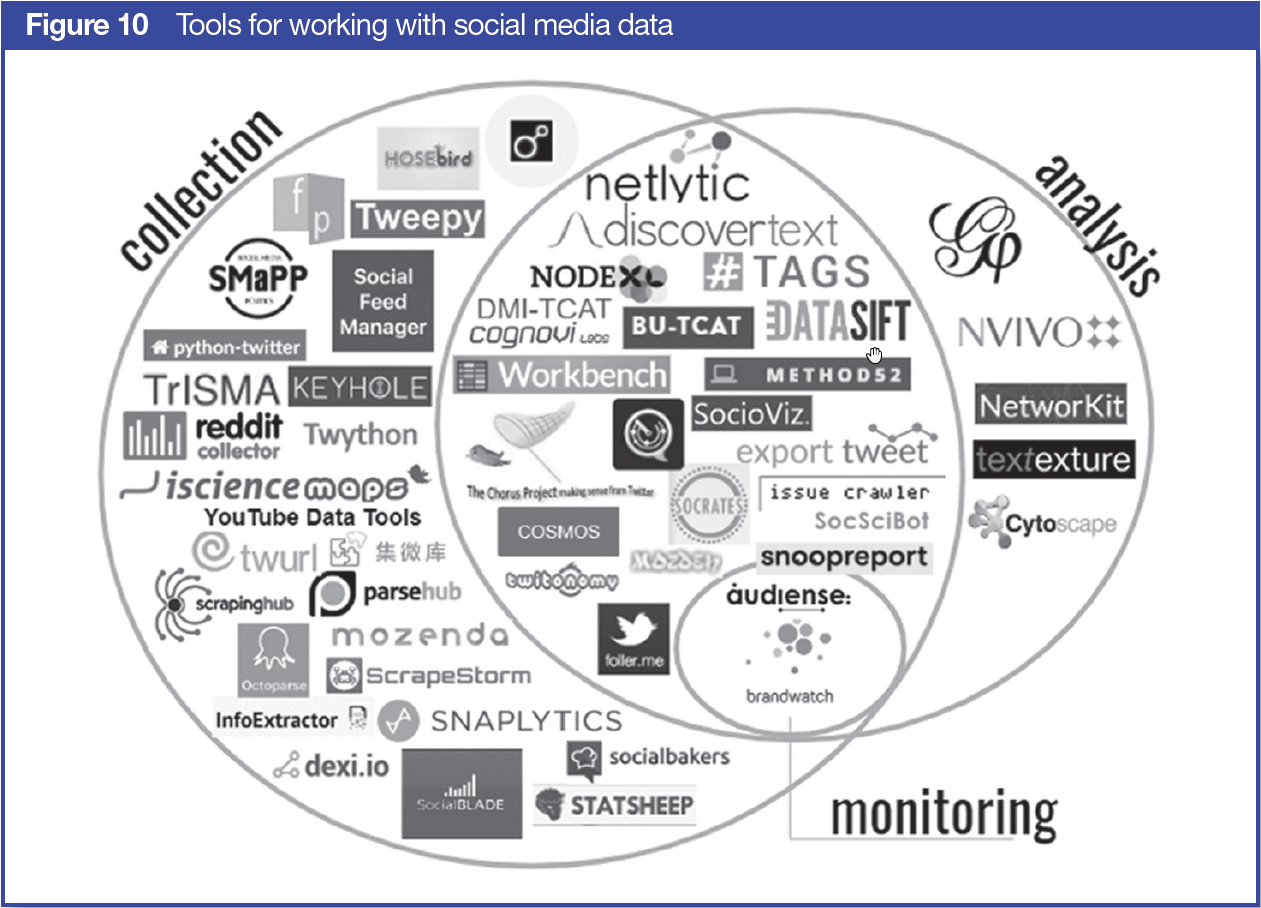Tools For Social Media Research
Tools for Social Media Research
Over 30% of the world’s population uses social media. We spend a vast number of hours attached to our devices; every minute in the United States, 2.1 million snaps are created on Snapchat and one million people log in to Facebook. This use generates an enormous amount of data about our behavior, opinions, and preferences. Some of this data can be collected and explored, not only for research purposes but also for insights that can help companies sell to or influence people. For example, even fast food chains are no longer waiting for their customers to complain but are parsing social media posts to pinpoint the location of restaurants that are likely to have caused food-borne disease.
Given that there is interest in this data from those conducting both academic and consumer research, a great quantity of tools (full apps, wrappers, or pieces of code) is available to explore social media data. At the time of writing, we have found and reviewed 104 tools that we know researchers have used (see Figure 10). Close to 70% of the tools (70 out of 104) interface with Twitter, even though this is not considered the most popular social media platform, with far fewer monthly users than Facebook or Instagram (Just over 300 million monthly users in 2019, compared to two billion on Facebook and one billion on Instagram, for more details check statista). We believe this is because it is much easier to access data from Twitter through their application programme interface (API) than from other platforms.

Generally, social media platforms have a policy against using their API for research purposes. This is true for LinkedIn and Facebook. However, the spread of misinformation has driven Facebook to enable access to their data for research purposes. In 2018, together with a number of partners, Facebook set up Social Science One, a nonprofit organisation led by a group of senior researchers from around the world who selected and gave grants to 12 teams of researchers to work with Facebook data. A couple of years earlier, and now on their second round of research programmes, LinkedIn set up the Economic Graph Research Program to enable researchers to access and work with their data.
More than half (56) of the social media tools we identified are either free apps or open source packages on GitHub, and 10 have limited free functionality. One tool that particularly caught our attention is DocNow, developed by Shift Design and a group of researchers at the University of Maryland and the University of Virginia, and funded by the Andrew W. Mellon Foundation. DocNow provides a collection of tools that respond to the role of social media in reporting historically significant events, or “documenting the now.” Prioritising ethical collection, use, and preservation of social media data in academic research, their crowd- sourced catalog of tweet ID datasets and “rehydration” tool allow access to historical tweets, whilst ensuring they are used in line with the creator’s decisions.
We published a series of blog posts in 2019 with more insights from our research: